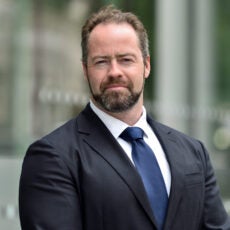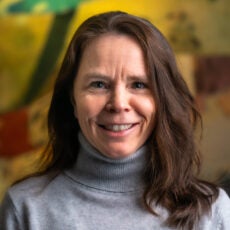Watch the recording.
Getting Real About Net Zero
Event Summary
At COP21 in 2015, the world coalesced around what has come to be known as the Paris Agreement, which aims to limit global warming to well below 2C and pursue efforts towards 1.5C. In 2018, the IPCC published their special report on 1.5C, making it clear that a key milestone of achieving this aim is getting to “net zero.” By 2019, national pledges had started to come in. Starting with the UK, roughly 90 % of the planet is covered by a net-zero pledge of one kind or another.
But what does net zero mean, exactly? Net-zero CO2 emissions, or all greenhouse gases? Absolutely zero carbon (fossil or otherwise in the energy system)? Is nuclear permissible, or should we rely exclusively upon wind, water, and solar power? Once the net zero pledge had been made, the question arose: “Who should pay?” How long have we understood climate change’s anthropogenic and dangerous nature? What, if anything, does this mean about culpability?
Recent publications by, among others, the IEA propose that fossil fuel use should imminently peak, and no further investment should follow–but how realistic is this, how can we reconcile this idea with that of addressing energy poverty, and to what extent is an apparent consensus on “phasing down” coal and phasing out fossil fuels compatible with broader questions of national sovereignty? Suppose we do start focusing on deploying renewable energy. How does intermittency impact the quantum of capacity required to replace or displace conventional thermal power generation? To what extent will EVs reduce oil demand? In all scenarios compatible with a Paris-aligned outcome, the deployment of carbon capture and storage (CCS) and carbon dioxide removal (CDR) technologies emerges as being indispensable–but this technology has consistently failed to overcome barriers to commercialization; how might this barrier be surmounted?
Boxed lunches will be available to go following the talk!
View the Presentation
Net Zero – Time to Get Real
Niall Mac Dowell
Niall Mac Dowell
Professor, Imperial College LondonNiall Mac Dowell is a professor of energy systems engineering at Imperial College London and Global Head of Carbon Management Technology at Barclays. Mac Dowell is a 2024-2025 Kleinman Center Visiting Scholar.
Jennifer Wilcox
Presidential Distinguished ProfessorJen Wilcox is Presidential Distinguished Professor of Chemical Engineering and Energy Policy. She previously served as Principal Deputy Assistant Secretary for the Office of Fossil Energy and Carbon Management at the Department of Energy.


